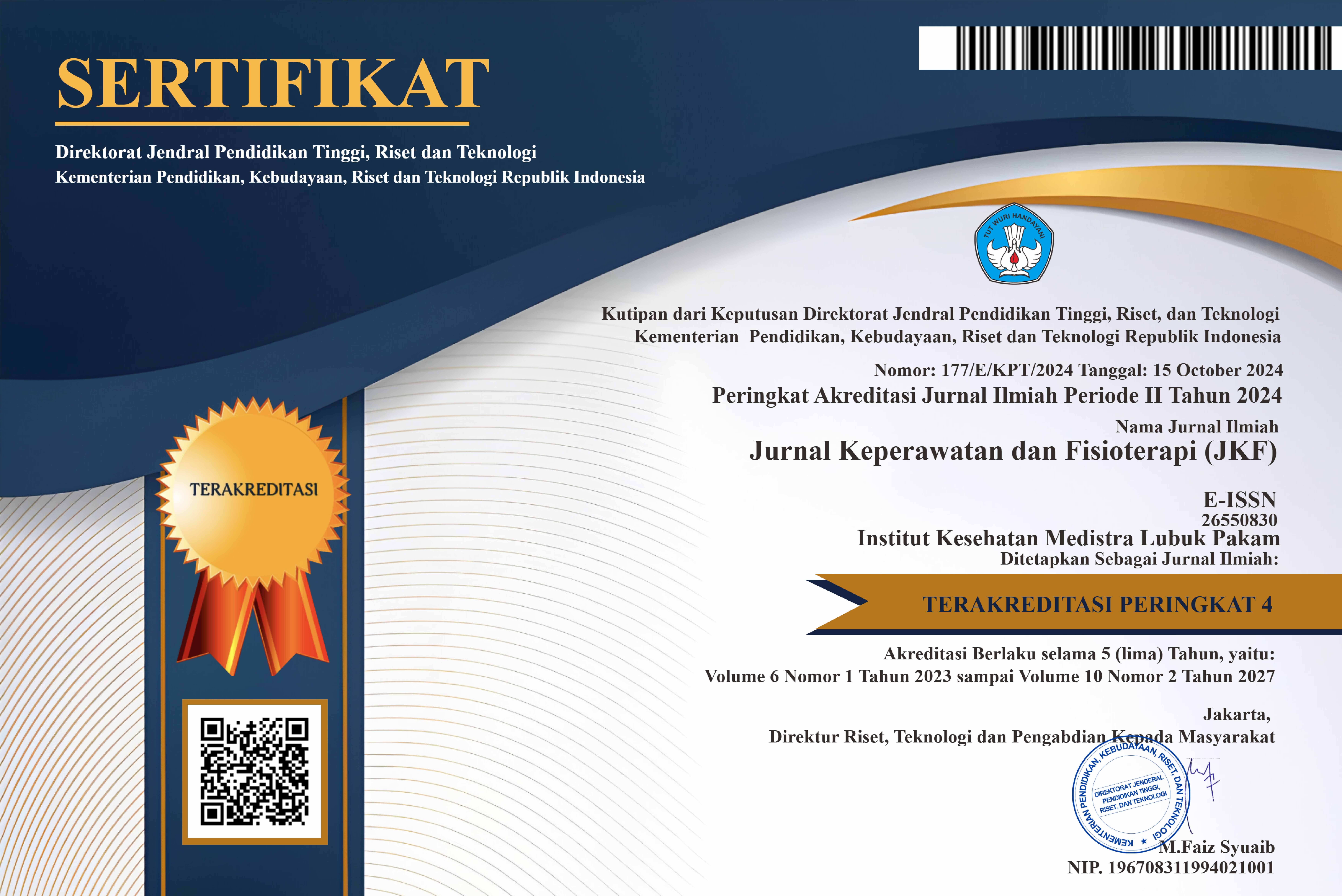The Effect of Giving Hatha Yoga Exercise on Increasing Sleep Quality in the Elderly in Karangkates Village
DOI:
https://doi.org/10.35451/jkf.v5i1.1226Keywords:
Sleep Quality, Elderly, Hatha Yoga ExerciseAbstract
Background: The elderly have several health problems including decreased physical and mental functions of the elderly including decreased sleep quality. Sleep quality is important for the quality of human life. Sleep quality is one of the conditions in which the individual sleeps and can increase the feeling of freshness and fitness when awakened from sleep. Poor sleep quality can interfere with daily activities in the elderly. Hatha Yoga is a low impact aerobic exercise that can be given to the elderly to improve sleep quality. Objective: To determine the effect of giving hatha yoga exercise on improving sleep quality in the elderly. The research method used a quasi-experimental research design with One Group Pre-test-Post-test Design with 30 elderly respondents in Karangkates Village. Respondents were elderly who met the inclusion and exclusion criteria. The instrument in this study used the Pittsburgh Sleep Quality Index Questionnaire. Giving Hatha Yoga Exercise intervention 3 times a week for 4 weeks. Research Results: Based on the analysis test using the Wilxocon test, the p-value of 0.000 <0.05 was obtained, then H0 was rejected and H1 was accepted, which means that there is an effect of hatha yoga exercise on improving sleep quality in the elderly in Karangkates Village. Conclusion: There is an effect of giving hatha yoga exercise on improving sleep quality in the elderly in Karangkates Village.
Downloads
Downloads
Published
Issue
Section
License
Copyright in each article is the property of the Author.


























